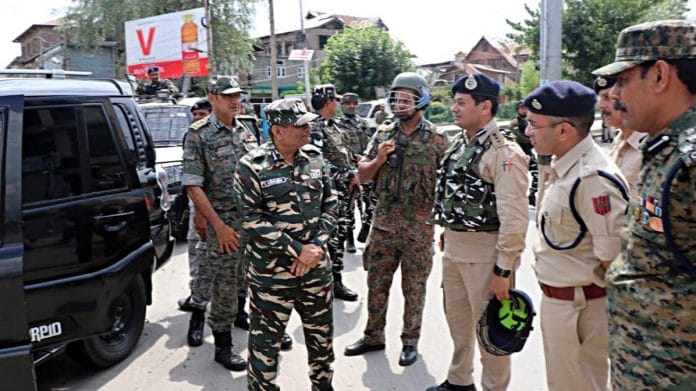New Delhi: On an average, one jawan of the Central Armed Police Forces commits suicide every three days. The central government has now come up with a set of guidelines that will make it compulsory for the forces to conduct a 15-day mental health orientation course to detect early signs and symptoms of mental illness among personnel.
The guidelines, drawn up by a board of officers comprising psychiatrists, involve routine evaluation of jawans and improving the existing mechanisms for grievance redressal.
The guidelines have been handed over to the CAPFs — including CRPF, CISF, BSF, SSB, ITBP and NSG — by the Ministry of Home Affairs for immediate implementation.
Also read: Relax rules for CAPF officers and give them pay parity with IPS, DoPT tells home ministry
What the guidelines say
According to government data, over 750 paramilitary personnel committed suicide between 2012 and 2018 — more than the number of personnel who were killed on duty. The guidelines say “perceived stress” was responsible for these suicides.
The guidelines cite issues like denial of leave at the time of requirement, separation from family, suffering from prolonged illness, access to weapons, psychiatric diseases like depression and psychosis, alcohol abuse, financial stress, extramarital affairs, infidelity and “sometimes simply to hold senior officers responsible for his/her death” as reasons for the “perceived stress”.
The forces have been asked to follow a transparent policy when it comes to transfers, postings and leaves of all personnel.
The guidelines also say officers should be sensitive to the behaviour patterns of the personnel, and should not ignore death or suicide warnings. Patterns such as a jawan not taking leave or relinquishing leisure activities should be dealt with seriously.
Moreover, personnel identified as suffering with any of the issues should not be given arms.
The government has also acknowledged in the past that paramilitary personnel face extreme work pressure and are often not granted leave. Jawans from the CRPF, BSF and ITBP often travel and serve in areas with precarious security situations like in the Northeast, Jammu and Kashmir, and areas facing Left-Wing Extremism (LWE).
“People stay away from their homes for 10 to 11 months, which obviously leads to marital discord. There will be suspicions and counter-suspicions and allegations. That also leads to suicide,” former home secretary Rajiv Gauba had said.
“They do not stay at one location and do not have any headquarters at a fixed location… Perhaps this disturbance is also a contributing factor in incidents of suicides.”
Also read: Top IPS officer wants to stop risk allowance for CRPF personnel with medical conditions






